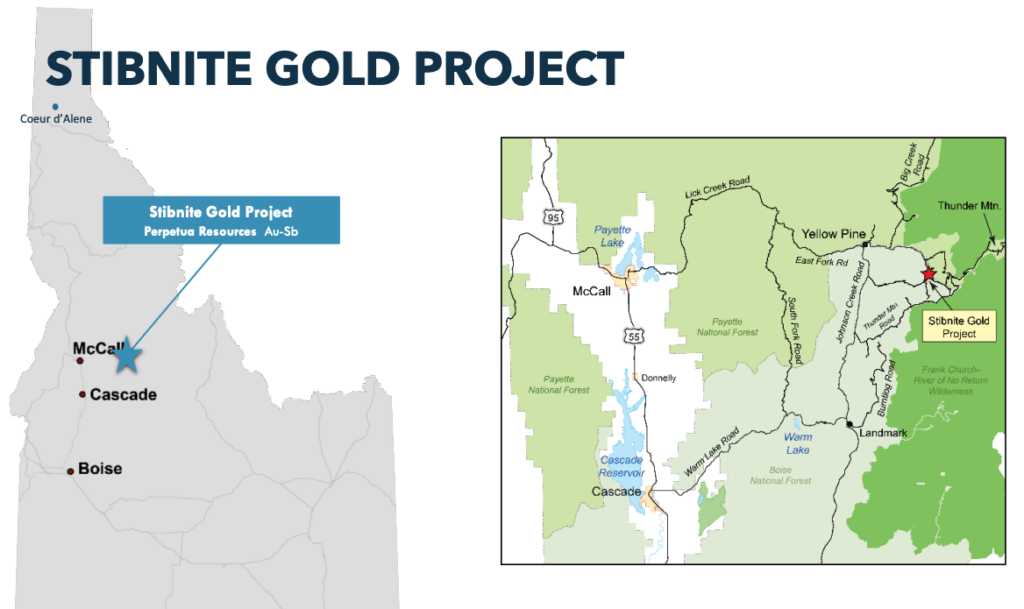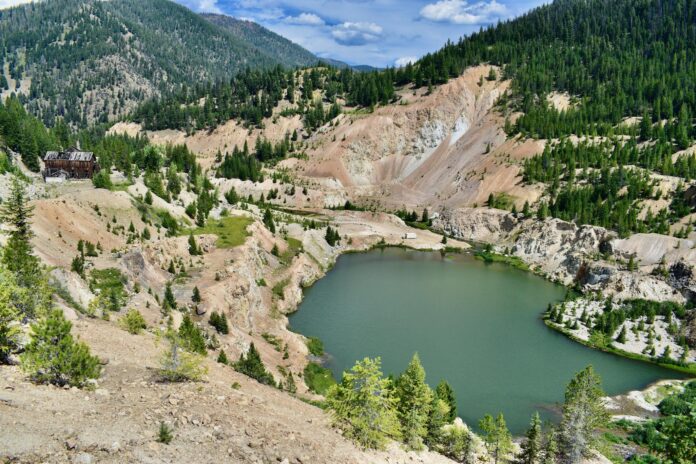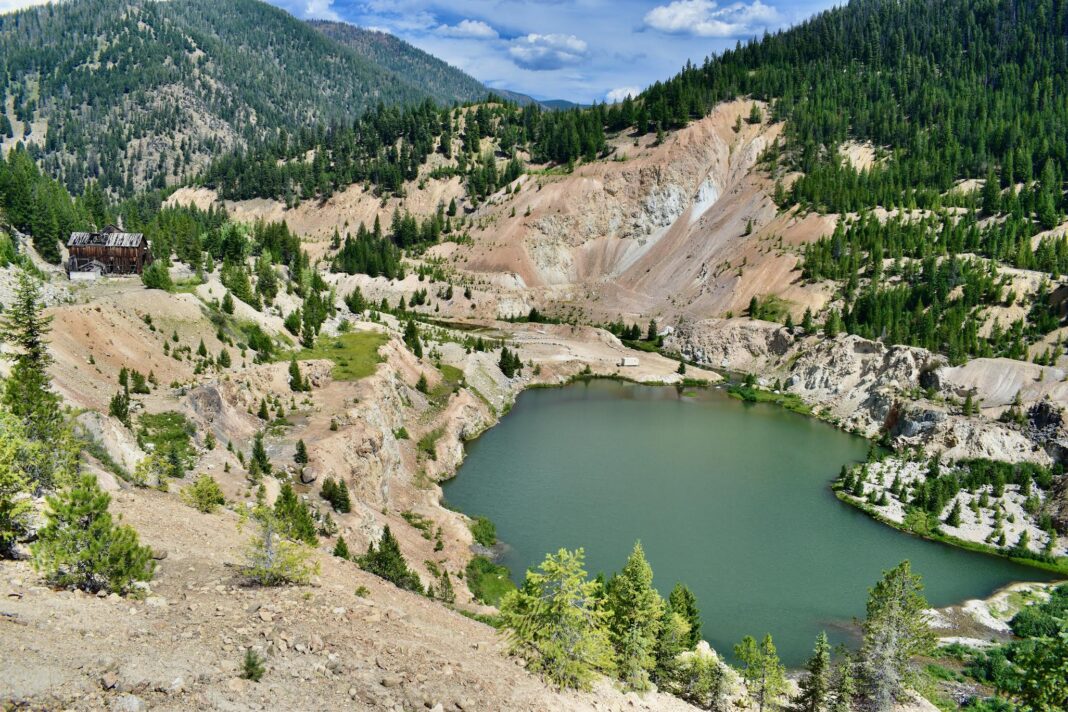The U.S. Forest Service and other federal agencies are being sued for their role in approvals issued earlier this year for a gold and antimony mine in eastern Valley County.
The lawsuit was filed yesterday in U.S. District Court by the Idaho Conservation League, Save the South Fork Salmon, Idaho Rivers United, Earthworks, American Rivers, and the Center for Biological Diversity.
The lawsuit asks a judge to overturn the approvals and stop Perpetua Resources from moving ahead with plans for its Stibnite mine, which would be about 45 air miles east of McCall.
Other agencies named as defendants are the U.S. Fish and Wildlife Service, National Marine Fisheries Services, U.S. Department of Agriculture, U.S. Department of the Interior, and the U.S. Department of Commerce.
The approvals issued by the agencies pose risks to public health, clean water, wildlife habitat, and endangered species of plants and fish, according to the conservation groups.
“This lawsuit is about protecting the South Fork Salmon River watershed from a toxic gold mine that would destroy vital habitat for salmon and bull trout along with this breathtakingly beautiful place,” said Marc Fink, senior attorney at the Center for Biological Diversity. “The agencies need to focus on cleaning up the toxic mining pollution that’s already here, not make things worse by greenlighting decades more of it.”
Perpetua responds
Perpetua CEO Jon Cherry provided a statement to Valley Lookout in response to the lawsuit.
“We are confident in the U.S. Forest Service’s ability to defend its Record of Decision,” Cherry said. “While legal challenges to mining projects are commonplace, it is important to ensure the process remains rooted in science and the rule of law.”
Cherry’s statement also said Perpetua’s plans are the “only viable path to near-term cleanup” waste from historic mining operations at Stibnite dating to 1919.
“These benefits are too important to be unnecessarily delayed, especially after 8 years of permitting and project improvements,” he said. “We are hopeful this challenge will be swiftly resolved, making the Stibnite Gold Project a reality.”

Eight-year review
The Forest Service’s approval was issued in January following an eight-year review of the project under the National Environmental Policy Act, a federal law that requires all projects that could affect natural resources to be studied for environmental harm.
The review, which also local, state, and other federal agencies, found Perpetua’s plan “minimizes adverse environmental impacts,” as required by law.
However, not building the mine would be “environmentally preferred” to permitting any of the 21 versions of the project analyzed by regulators, according to environmental studies by the Payette.
The studies totaled nearly 7,000 pages of analysis and drew more than 28,000 public comments.
The approved mining plan approved allows Perpetua to extract gold, silver and antimony from three open pit mines totaling about 473 acres within the 1,740-acre project zone, which is about three miles from the Frank Church – River of No Return Wilderness.
Mining would follow a two to three-year construction period and could last an estimated 12 to 15 years. The mine could produce an estimated 148 million pounds of antimony and 4.8 million ounces of gold, which would account for 96% of the mine’s estimated revenue.
Without donors like you, this story would not exist.
Make a donation of any size here
East Fork South Fork Salmon River
The East Fork South Fork Salmon River flows through the project site and would be re-routed around one of the pit mines during operations.
The Payette’s approval imposed additional protections for the river, citing a “reasonable level of uncertainty” about how the mine may affect water quality, quantity, and temperatures in the river and nearby streams.
Extra measures include more frequent water quality sampling and monitoring, as well as more modeling of how groundwater pumping to allow for mining will affect water flows in nearby streams and springs.
Next steps
Despite the Payette’s approval, Perpetua still needs to secure several permits and approvals from other agencies, including the Idaho Department of Environmental Quality.
A revised plan of operations that accounts for additional requirements imposed by the approval also needs to be submitted to the Forest Service.
Perpetua must also provide an estimated cost of site clean-up after mining and a financial assurance package that guarantees the clean-up work is funded, regardless of the success of the mine.
It is currently unclear if federally mandated workforce cuts across the Forest Service could affect the timeline for completing the additional steps.






